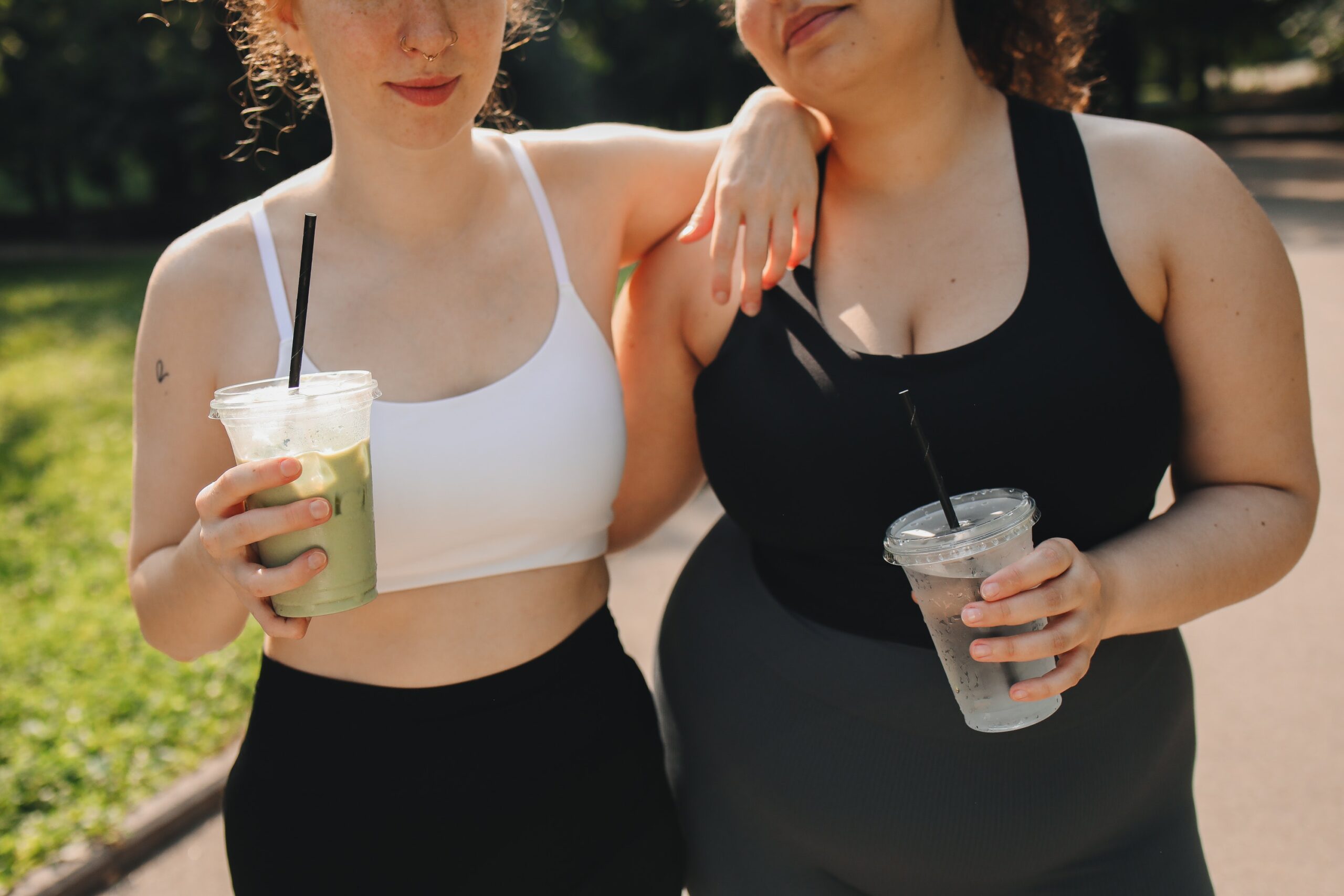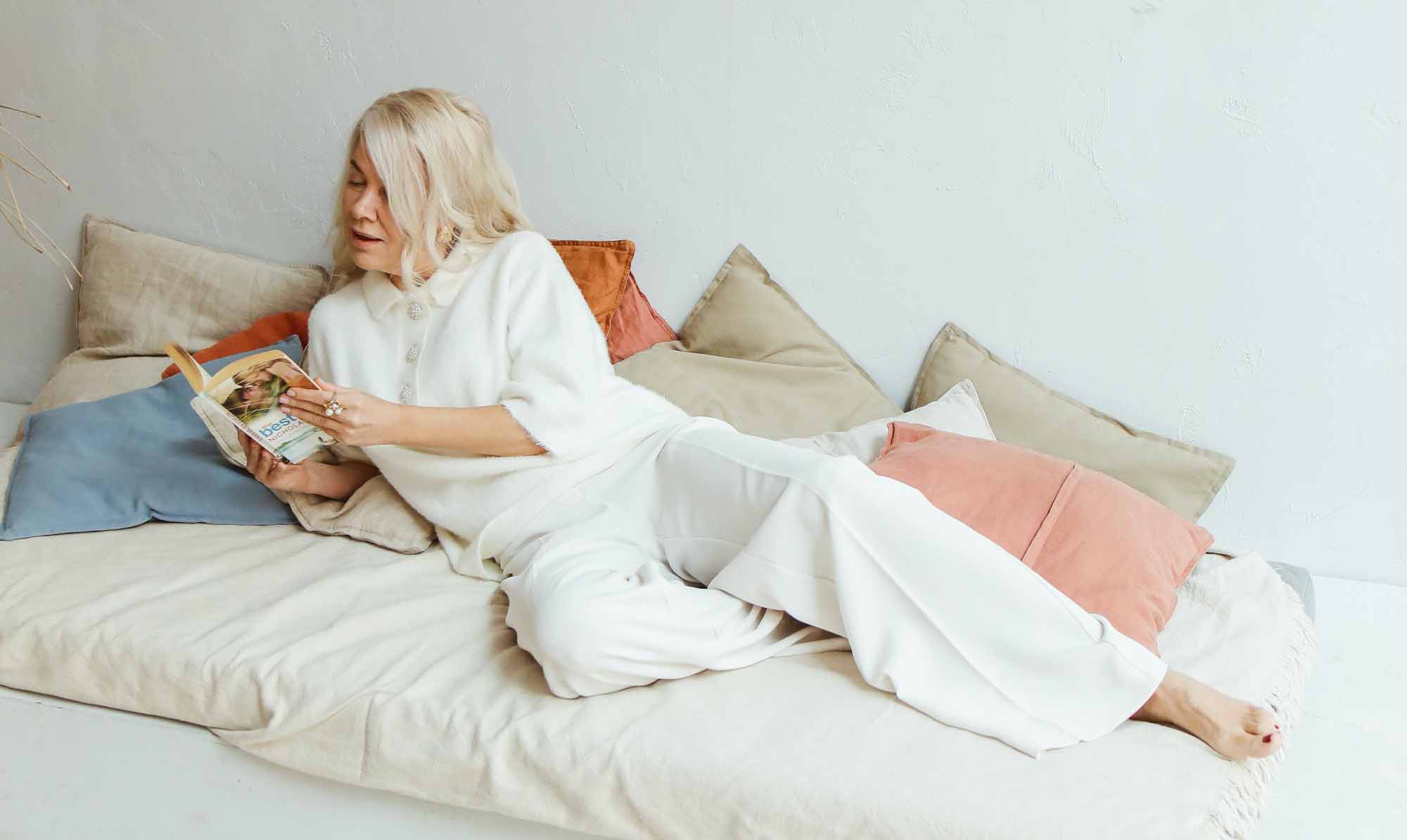The more chaotic your life is, the more you need balance to find quiet in busy times. Most of us survive on a mixture of adrenaline, coffee and days crammed with meetings, kids, deadlines and remembering to pick up parmesan for dinner. Our phones are always out, headphones adorn our ears, we’re overscheduled and even our watches alert us to incoming texts. If there’s anything slowing down with a global pandemic has taught us, it’s that we need more calm in our lives.
Downtime Daydreams
Recent studies show that our brains actually need downtime in order to process what it has learnt each day. How many times do you replay conversations in your head when you are resting, and think of how it could have gone better? This consolidation is essential in understanding the world and making everything more coherent for when you encounter similar situations again. Day dreaming is also thought to be essential and some studies have shown that we solve our trickiest life puzzles when daydreaming. Plus, if we didn’t daydream, we wouldn’t hit upon that one brainwave idea which forms into a business whilst we’re in the shower. But we can’t daydream or work through a problem in our minds without giving our brain the quiet downtime it deserves.
“Calm brings inner strength and self-confidence, so that’s very important for good health,” Dalai Lama
Find some quiet – Get up early
“Once the children came along, I didn’t feel I had anytime alone anymore,” explains mum-of-three Polly. “That’s when I stumbled onto the idea of getting up early twice a week and having some quiet time. I love watching the birds in the trees or the fox that slinks into the garden who always seems surprised to see me with my cup of tea. It’s quiet moments where I notice the first snowdrops in the garden or the ripe blackberries at the end of the summer, that I would have missed in the chaos of busy family life.”
Find some quiet – write it on a calendar
Whether it’s the family calendar pinned up on the wall, or phone reminders, or even a work diary; schedule quiet time in your day to remind yourself you need downtime. Perhaps it’s time to read a book, go for a ten-minute walk, or putting headphones on and listening to classic fm. Don’t worry too much if you can’t seem to find any more than 10-15 minutes. Any amount of break, especially if you are concentrating hard on something like your tax return, or an intense work project will help you to process what you’ve read and helps you retain information. Taking a step back also helps you to do a little self-evaluation to make sure your project, for example, is on the right track.
Find some quiet – turn off the noise ‘in between’
How many times do you come in from a busy day at work and put the radio or TV on? Or do you reach for a podcast when you’re doing laundry? Think back over your day today, how many minutes of genuine quiet, calm and silence do you actually get per day? If it’s very little try these tips:
- Listen for a ticking clock. If you can’t hear your clock ticking because the TV’s on or you’re too busy scrolling through Instagram, it’s time to tune out and switch off. Close your eyes and concentrate on the ticking clock for ten minutes.
- If you commute to work turn the car radio off or leave the headphones at home when travelling on trains or buses. Try to notice what is happening around you.
- If you’re really uncomfortable with silence decide on a mantra to repeat to yourself until you get used to it. How about repeating: “I am peaceful, calm and secure,” over in your mind.
Find some quiet – Practise yoga…
Yoga is the perfect practice to calm your mind, but also focuses on building strength and flexibility. Evidence shows it can lower blood pressure, helps with depression and stress and can be beneficial for a myriad of physical ailments including lower back pain. The best thing about yoga is that anyone can do it; you can easily find classes especially tailored for post-exercise, back problems, anxiety, plus-size yoga, yoga for pregnancy and postnatal, yoga for seniors and yoga for children. Each class usually ends with a savasana; which is the practice of relaxing each part of your body, one muscle and breath at a time, and is a delicious treat after any yoga class.
…and meditation
Meditation is focusing your attention on one thing, like your breathing, which helps to push away all other thoughts and makes us aware of when our focus drifts. Not just brilliant for your mental wellbeing, but studies from UCLA found that meditation helps preserve the aging brain. There’s also evidence meditation helps with depression, concentration, anxiety and can improve your attention span. Visit Do Yoga With me for some free guided meditation.
Find some quiet – make a list of quiet things
There are plenty of activities you can do (for free) which involve being quiet and calm. My personal favourite is having a bath, because you can literally lock the door and float into a calming state. Going for a run, although active can be really calming as your thoughts are your own and you are often running through nature. Try to get used to running without headphones so it’s just you and your thoughts.
“During lockdown I rediscovered sewing and embroidery,” says Rosie, 27. “Because I have to concentrate, I don’t have the radio on, or any distractions and It helps me to focus my mind.” Find modern embroidery kits here
Find some quiet – Switch your phone off
We rely on our phones for everything; the weather, the news, as a sat nav, for social contact and work. As well as straining our eyes, giving us neck pain and stopping us from sleeping, phones also provide noise and distraction at the tip of our fingertips every minute of every day.
Start an experiment to see if you can reduce the amount of times you pick up and check your phone. Stick a note to the back of your phone which says: Do you need to look at me? And only check your phone if it’s essential. Do this for a week and see if it affects your mood, concentration and wellbeing to feel less connected. If you’re finding this hard, go to the Screen Time section in your settings and schedule time away from your phone when only apps you choose and your phone, will work.
Find some quiet – practise mindfulness.
I’m the first to admit I’ll be doing a yoga class whilst mentally running through my to-do list for when the class finishes – I find it hard to switch off and find some quiet. Mindfulness can really help and is a practice where you are fully present in the moment; not dwelling on the past or overthinking the future but fully attending what’s happening right now. It’s accessible to everyone, even children and can change the way you approach your day. It can help to reduce stress, gain awareness and help with your concentration. The basic principles of mindfulness are breath-focused attention – focusing on your breathing and nothing else and paying attention to different parts of your body. There are tons of books to get you started, as well as apps and mindfulness classes online. Try these books for starters:
Mindfulness – a practical guide to finding peace in a frantic world, by Mark Williams and David Penman.
The little book of mindfulness – 10 minutes a day to less stress, more peace, by Patrizia Collard.
Mindfulness for parents, by Amber Hatch.
Mindfulness for Children, by Uz Afzal.
Find some quiet – Forest Bathing
There’s nothing more therapeutic than visiting the countryside or the sea and immersing yourself in the power of nature. The Japanese practice of ‘Forest Bathing’ (Shinrin-Yoku) is gaining followers and is basically ‘bathing’ yourself in the presence of the forest. The idea is to spend time in the forest, noticing everything around you and even going barefoot to connect with the earth. There are numerous studies which show spending time in nature, but specifically near trees can reduce stress, boost your immune system, increase your focus and energy levels and help with your sleep. See the National Trust’s Forest Bathing guide to find your nearest forest.
“I long for the countryside. That’s where I get my calm and tranquillity – from being able to find a spot of green” Emilia Clarke.
Find some quiet – Breath
Learning how to breathe properly seems to weave itself into all the practises listed above. Breathing properly (diaphragmatic breathing) improves our health, reduces anxiety and helps detoxify our bodies. It can be really useful in stressful situations when we need to calm ourselves down. Here are some tips on how to do a daily breath-focused activity. It’s really quick and you can do it at your desk at work:
Place one hand on your belly and one hand on your chest
Take a deep breath in through your nose and let your diaphragm fill up (your diaphragm is located at the bottom of your lungs, so let this area fill up, not your chest).
Exhale slowly though your mouth.
Try these 10 times, for 10 minutes every day, especially to help you relax, focus or when you feel stressed.
Find some quiet – Visit the library
If the forest is the king of relaxing outdoor spaces, your local library is the queen. Not only do you have to be quiet, it’s also full of fiction, fairy tales, encyclopaedias, local history and all the knowledge you’ll ever need. Not many things are free, but the library remains a stalwart to lending free books to anyone. I love that you have to be quiet, it teaches children to be calm and respectful and focus just on the books. It’s also a great way to ‘try before you buy’ and discover which authors you like before you commit to buying. The library is the perfect place to find some solitude and get lost in a good book. Click here to find your nearest library.
“Libraries are reservoirs of strength, grace and wit, reminders of order, calm and continuity, lakes of mental energy, neither warm nor cold, light nor dark … In any library in the world, I am at home, unselfconscious, still and absorbed.”
Germain Greer









